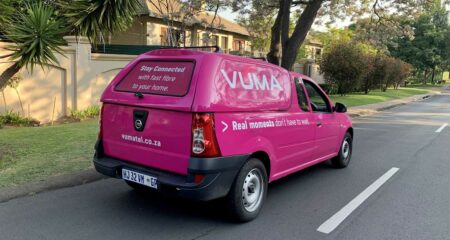
The scale at which this novel coronavirus (Covid-19) has altered the world was unfathomable just a few months ago: something in the region of a quarter of the world’s population is under lockdown or shelter-at-home orders; air travel is virtually shut down; countries have closed borders; and global supply chains have been interrupted or have collapsed. One of the most evident effects is the huge surge in demand on our connectivity infrastructure and Internet, streaming and cloud services.
Some of the major winners in this have been Microsoft Teams, Netflix, Zoom and Houseparty, as well as Showmax locally. In the UK, mobile provider BT has reported a 60% increase in traffic, with Vodafone reporting a 50% surge in mobile data traffic. Italy reportedly reached their annual traffic forecast in a single week, while other countries are reporting annual growth rates within a month. The consumption pattern will most likely not go back to normal in a post-Covid-19 world.
High-speed, reliable connectivity is a central and key priority for enabling access to these digital applications and services. Traditionally, companies operating connectivity businesses in South Africa have had to navigate the fine line between demand and supply to remain sustainable and profitable. Rolling out fibre networks is capital intensive, and one of the greatest inhibitors to the rapid deployment of fibre is the challenge of getting permission and rights of way that allow an operator to connect end users and start recouping their investment costs – a large proportion of which is reinvested into network expansion. This hindrance is a disadvantage to end users and to the fibre infrastructure provider.
Productivity
At Dark Fibre Africa (DFA), we have seen how working from home has actually boosted productivity. We have seen a distinct shift in the market to video calling over voice calling, meaning rich content is being demanded and consumed – all of which requires a fibre backbone to enable it. In addition to workforce productivity, the Covid-19 pandemic has driven significant growth in vertical services built on top of the Internet, such as telemedicine or e-health applications and online learning and education.
With fewer people on the road, we are all exploring the application of Internet of things (IoT) devices, such as sensors, for monitoring equipment and plants off-site. These, as well as e-health and e-schooling, were nascent technology trends in South Africa that are shifting to mainstream as you read this. We have also seen how connectivity infrastructure, including towers and data centres, have come together to deliver these types of cloud-based services.
This has been supported by the swift and capable response of authorities in both the public and private sector. Quick and definitive actions have been taken, including the gazetting of new regulations around essential facilities, spectrum, and the expediting the procession of ICT equipment through customs. As an example, the South African telecoms regulator, Icasa, announced in early April an emergency release of broadband spectrum, which was anticipated for limited auction only towards the end of the year, to cope with the demand for mobile data capacity.
 This is, I suspect and hope, our new normal when we emerge from this pandemic. We will need to accelerate the deployment and development of this critical infrastructure – a matter that is informed as much by policy as it is investment – and we will all need to do our part to meet these connectivity needs by providing this enabler and, frankly, modern human right.
This is, I suspect and hope, our new normal when we emerge from this pandemic. We will need to accelerate the deployment and development of this critical infrastructure – a matter that is informed as much by policy as it is investment – and we will all need to do our part to meet these connectivity needs by providing this enabler and, frankly, modern human right.
We should also remain focused on ensuring that infrastructure is delivered in an efficient manner and that artificial constraints are not introduced that impede the efficient deployment of infrastructure and access to connectivity to end users. The real value of wholesale, open-access infrastructure providers is that they are able to achieve economies of scale across their layers of infrastructure investments and pass these benefits on to end users via their wholesale customers. Infrastructure companies at scale promote services-based competition, which provide end users with a range of innovative digital solutions, services and applications at competitive prices.
About DFA
At DFA, we’re all about laying the groundwork for the future today. Since 2007, we’ve been assisting our customers with solutions for their connectivity needs, thus connecting South Africans to each other and to the world. DFA is the premier open-access fibre infrastructure and connectivity provider in South Africa. We finance, build, install, manage and maintain a world-class fibre network to transmit metro and long-haul telecommunications traffic. We lease our secure transmission and backbone fibre infrastructure and provide associated connectivity services to telecoms operators, Internet service providers, media conglomerates, tertiary education institutions, municipalities, government organisations and other businesses, large and small, on equal terms. For information visit our website. DFA is a level-2 B-BBEE contributor under the ICT sector codes.
- Vino Govender is executive for strategy, mergers and acquisitions, and innovation at Dark Fibre Africa
- This promoted content was paid for by the party concerned




